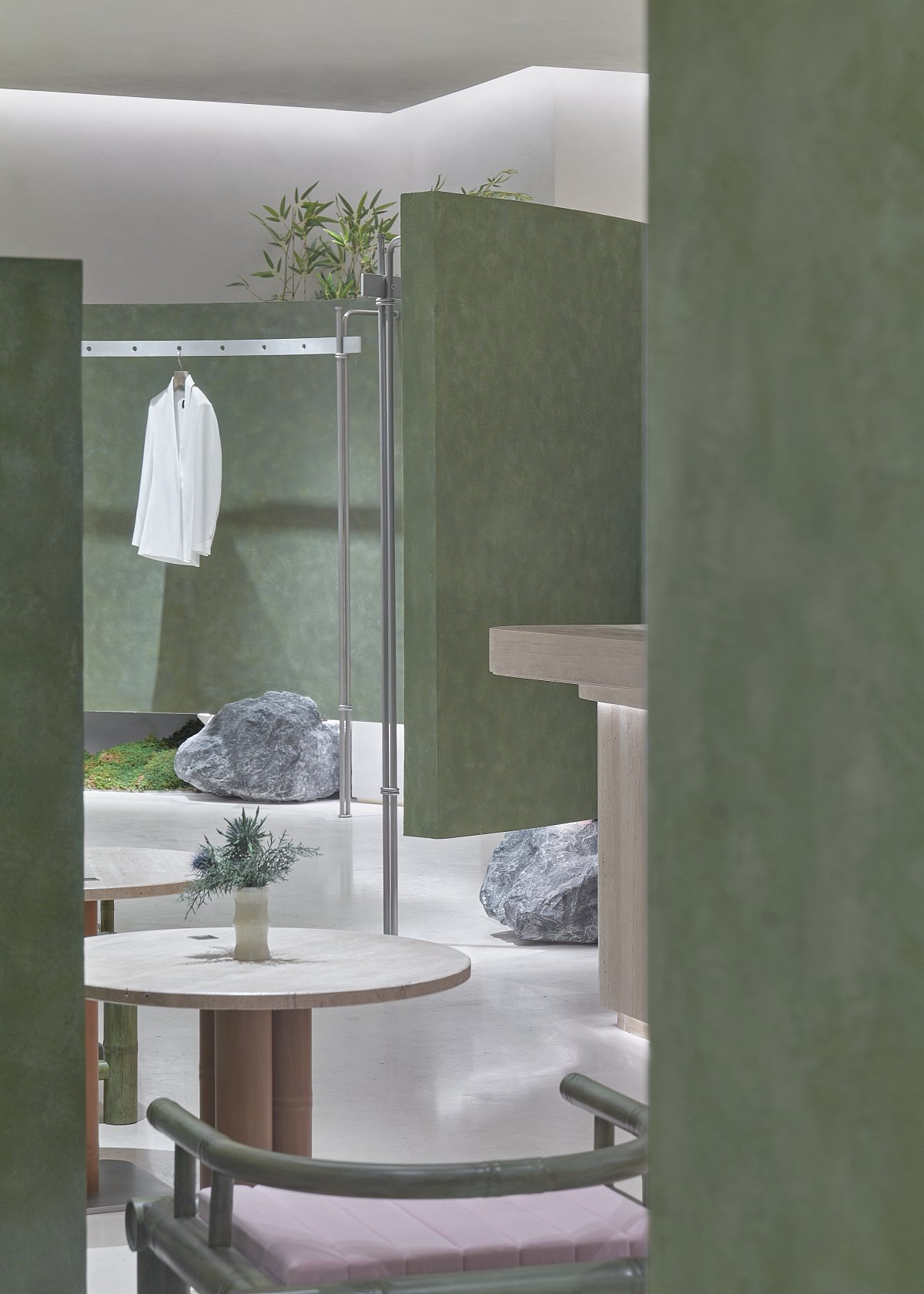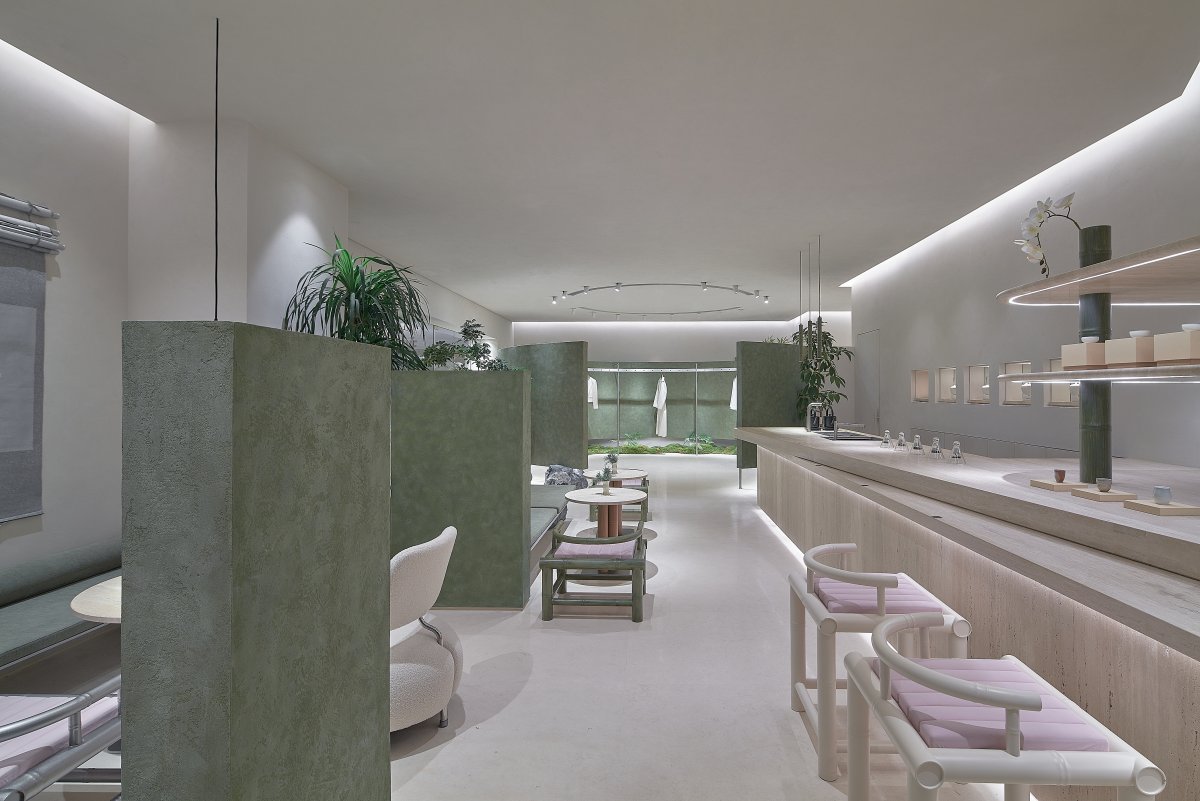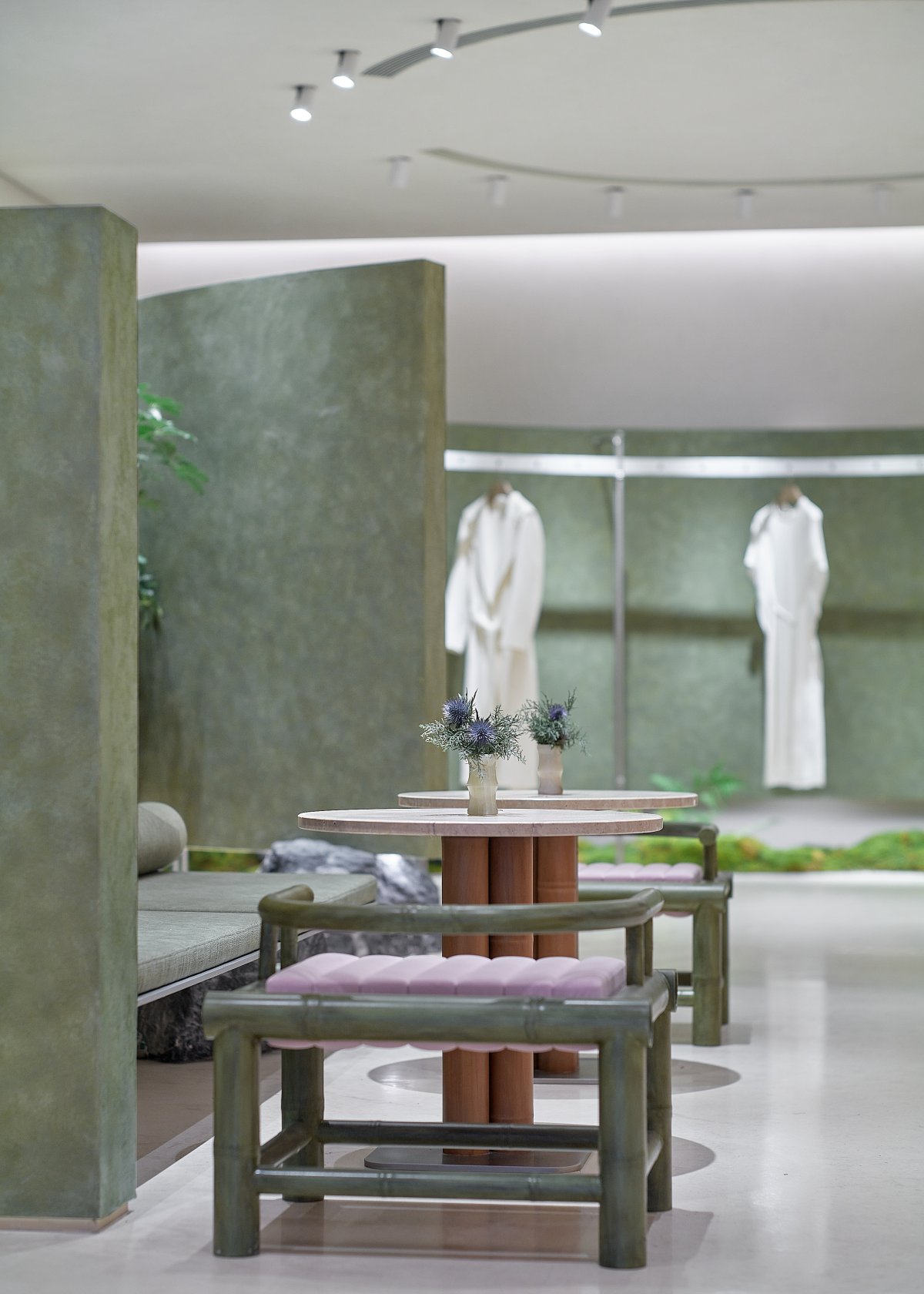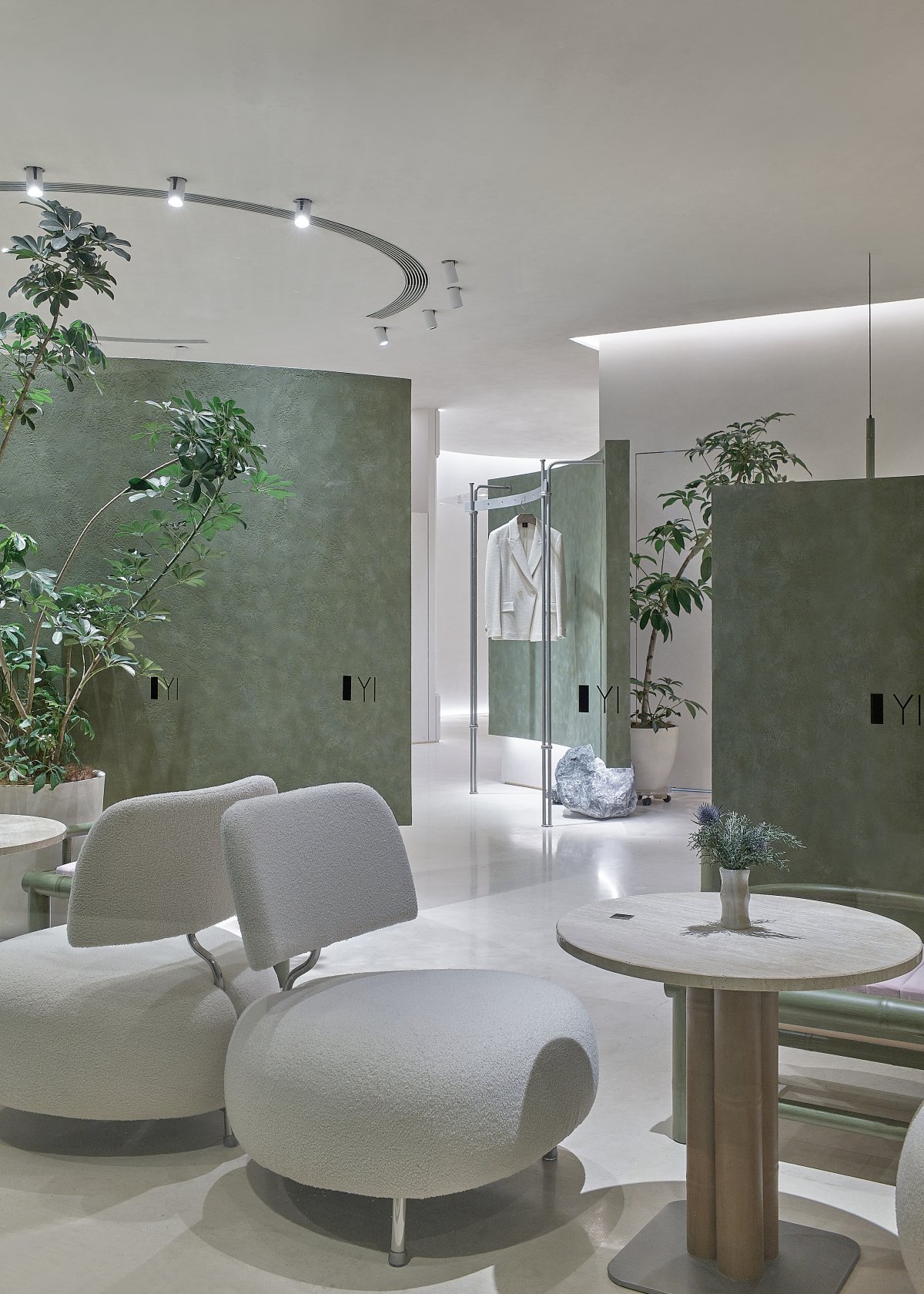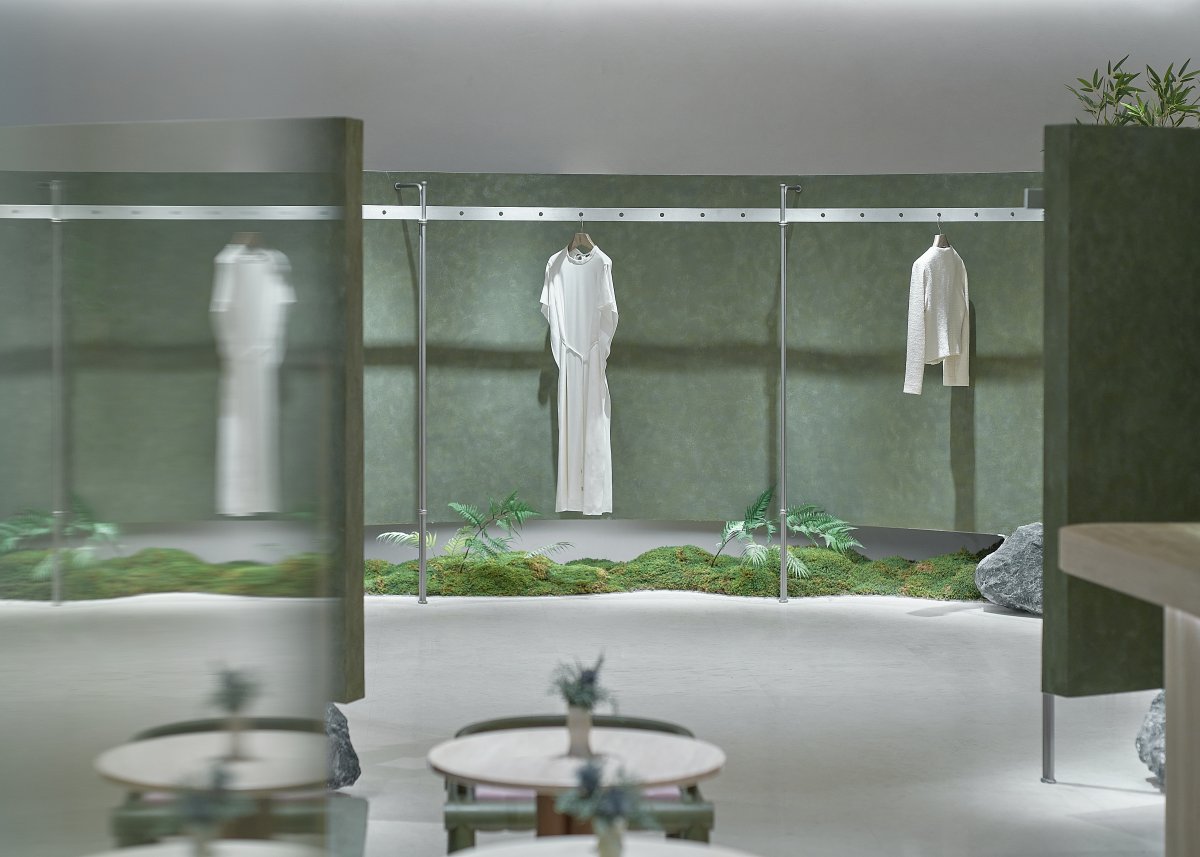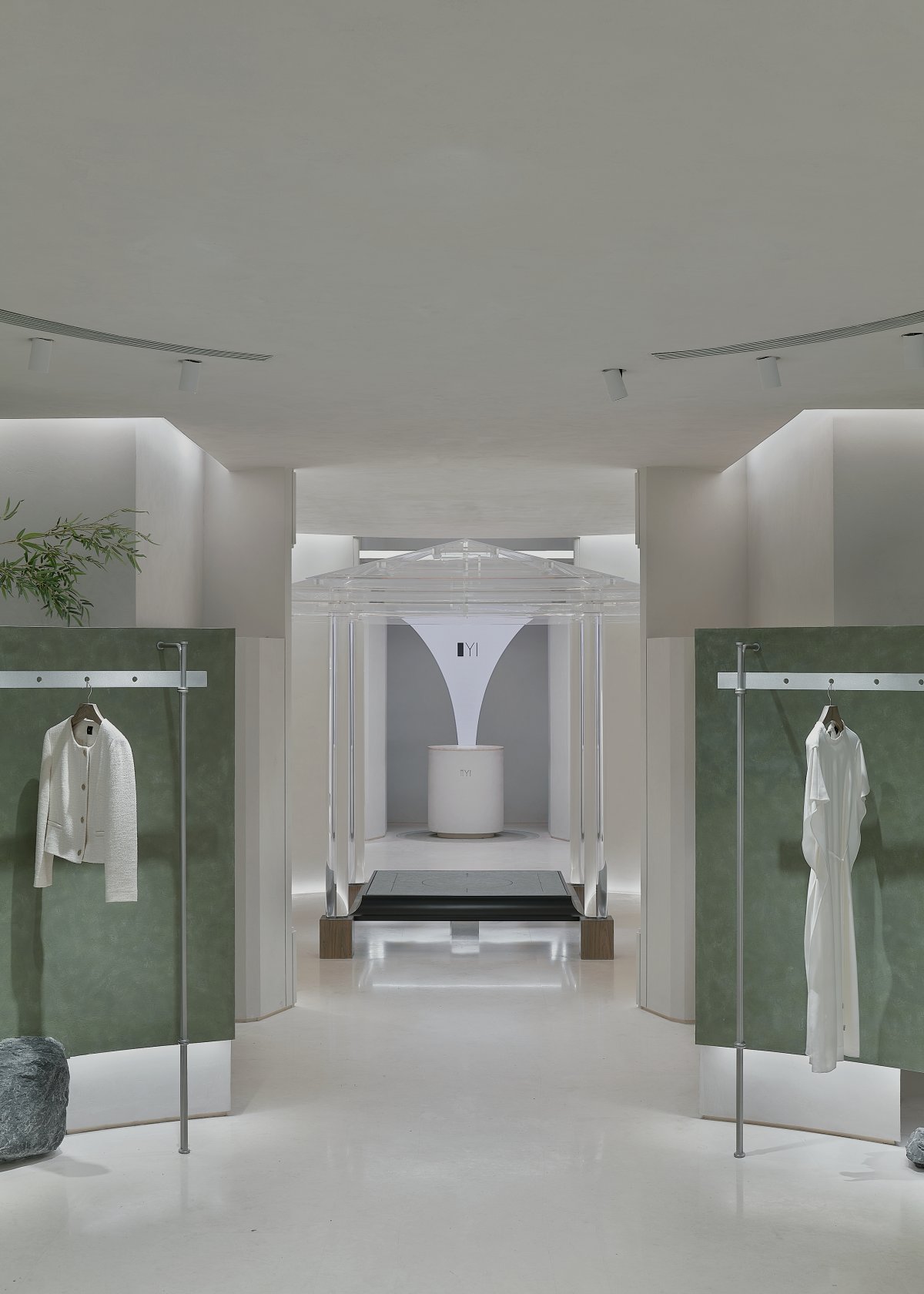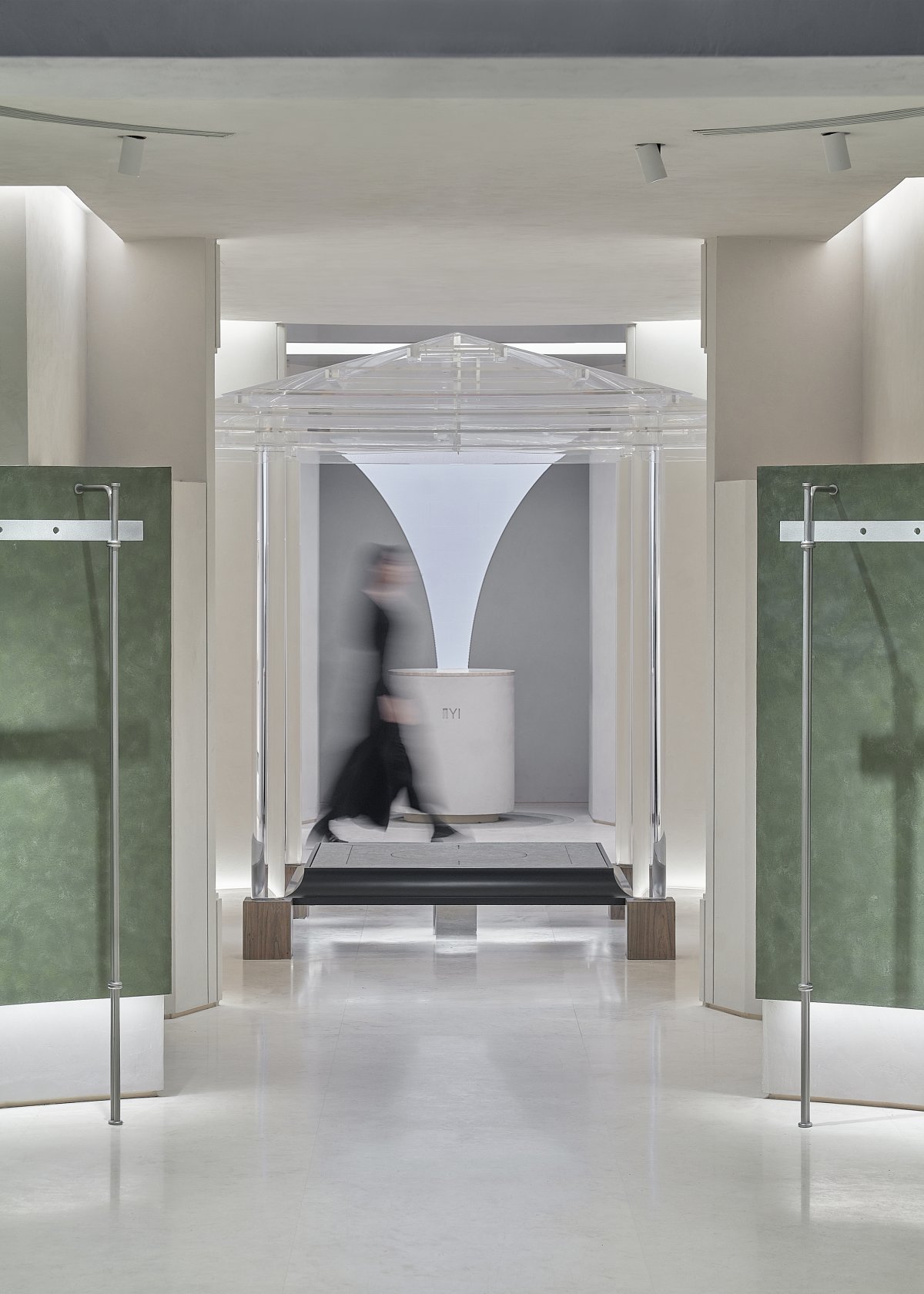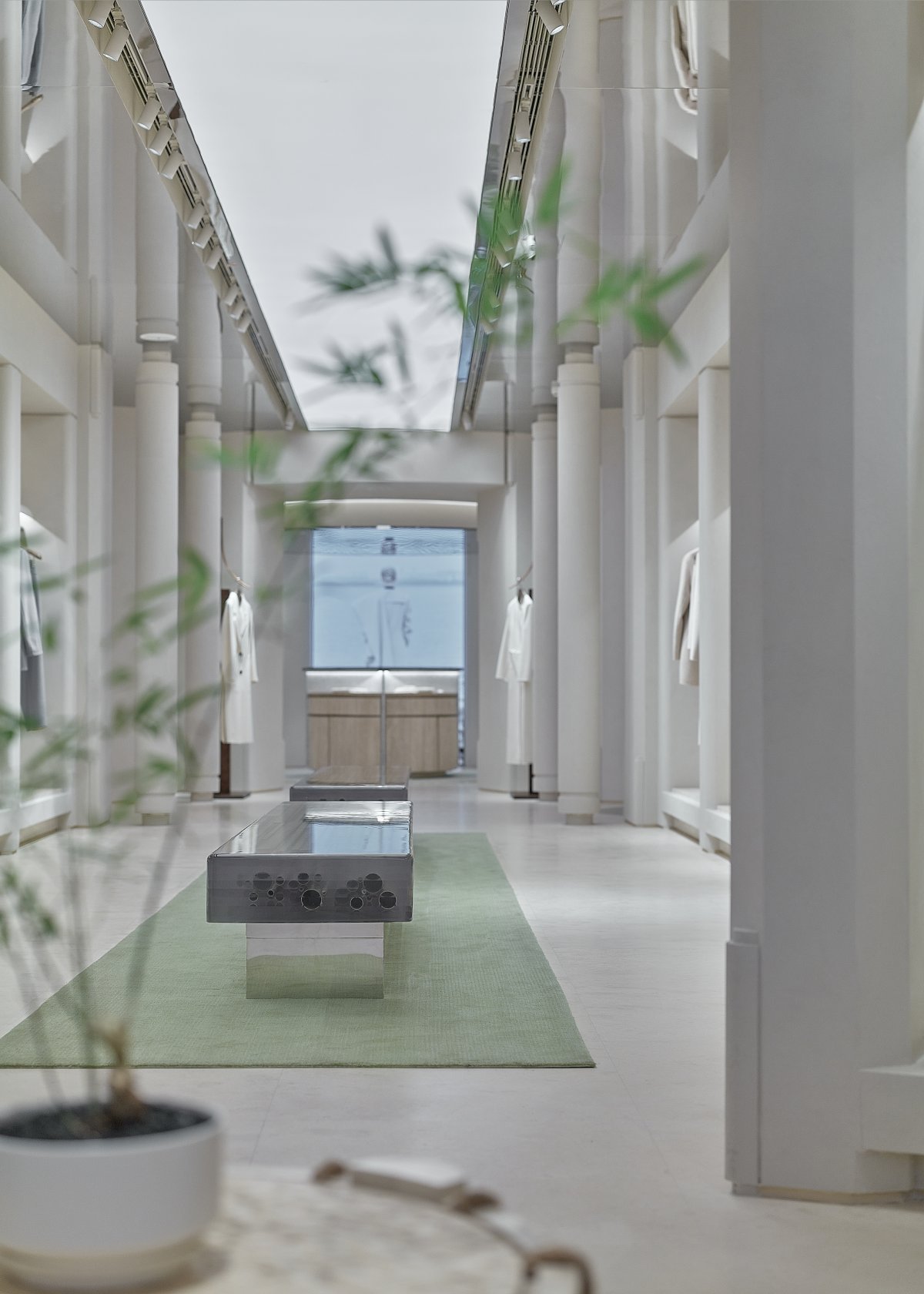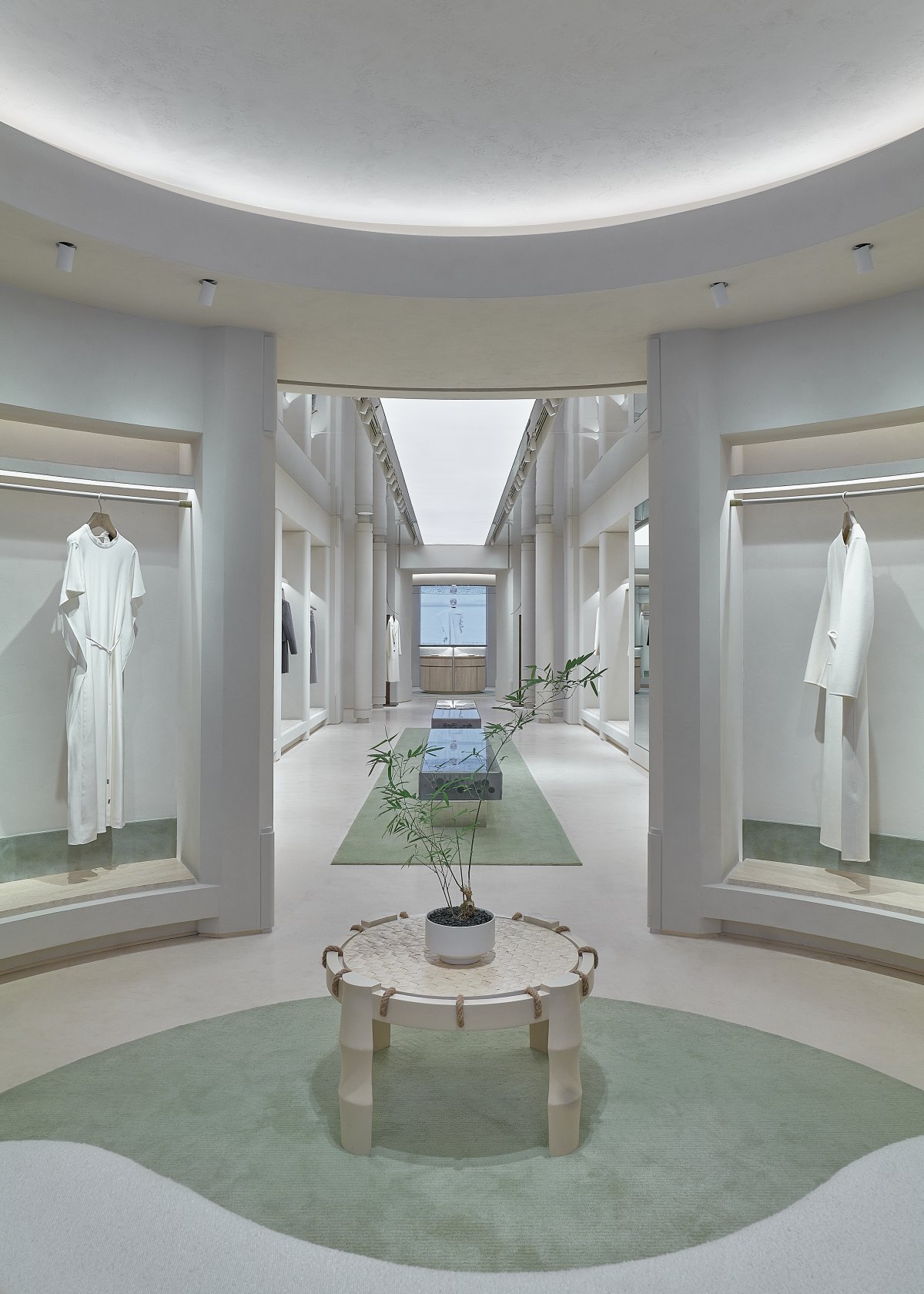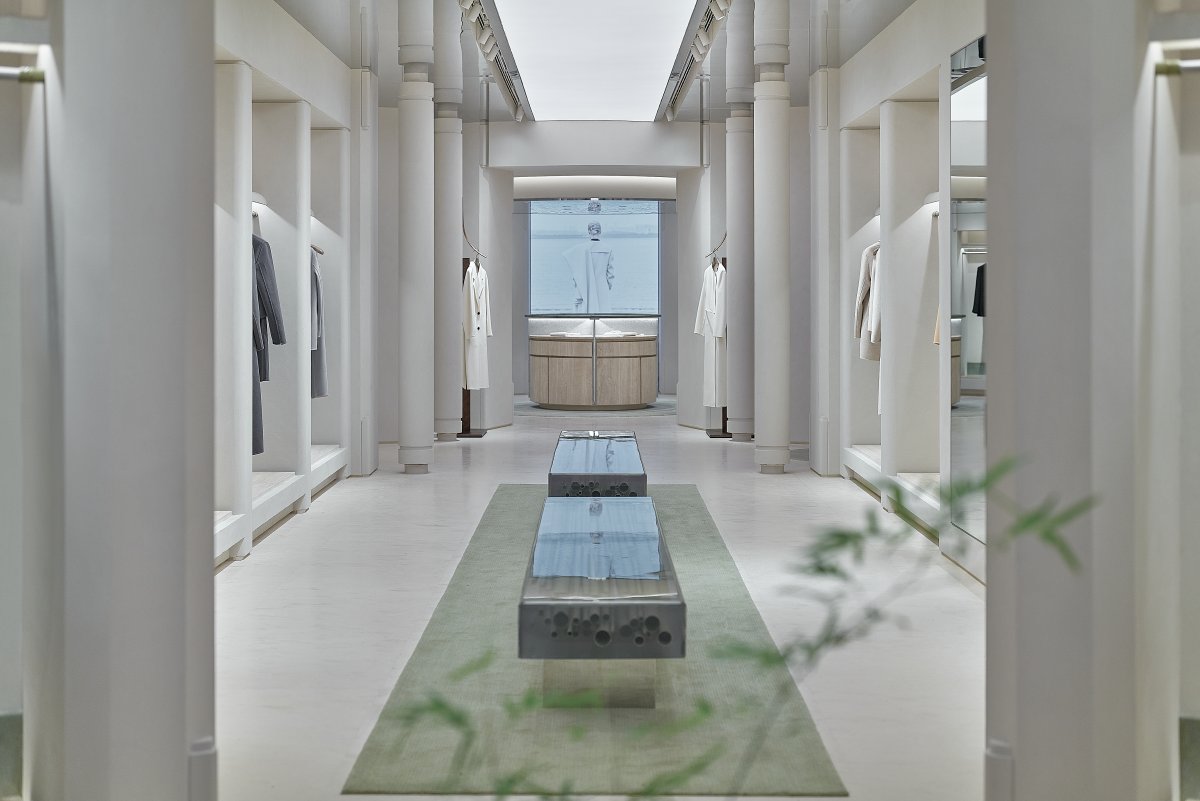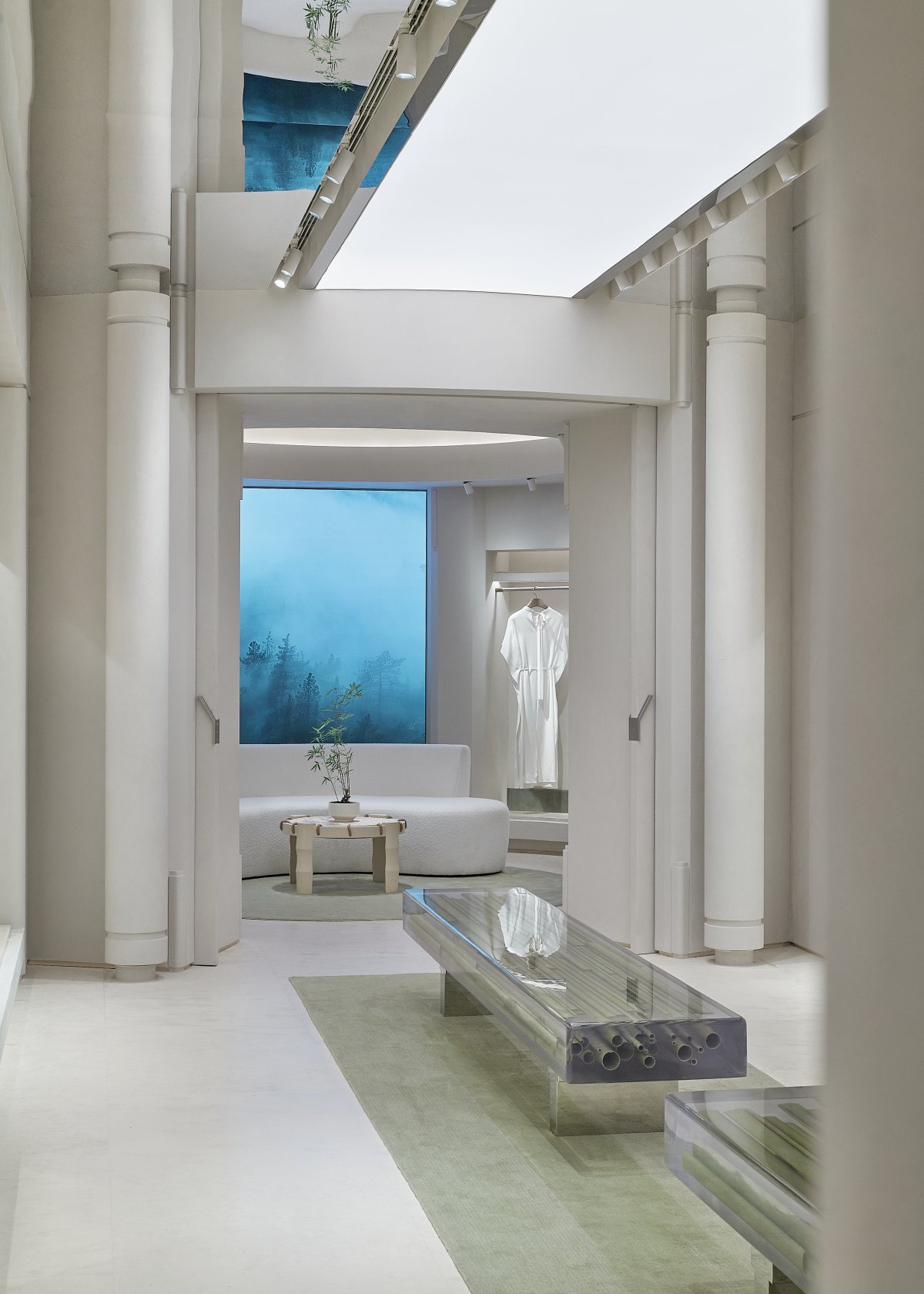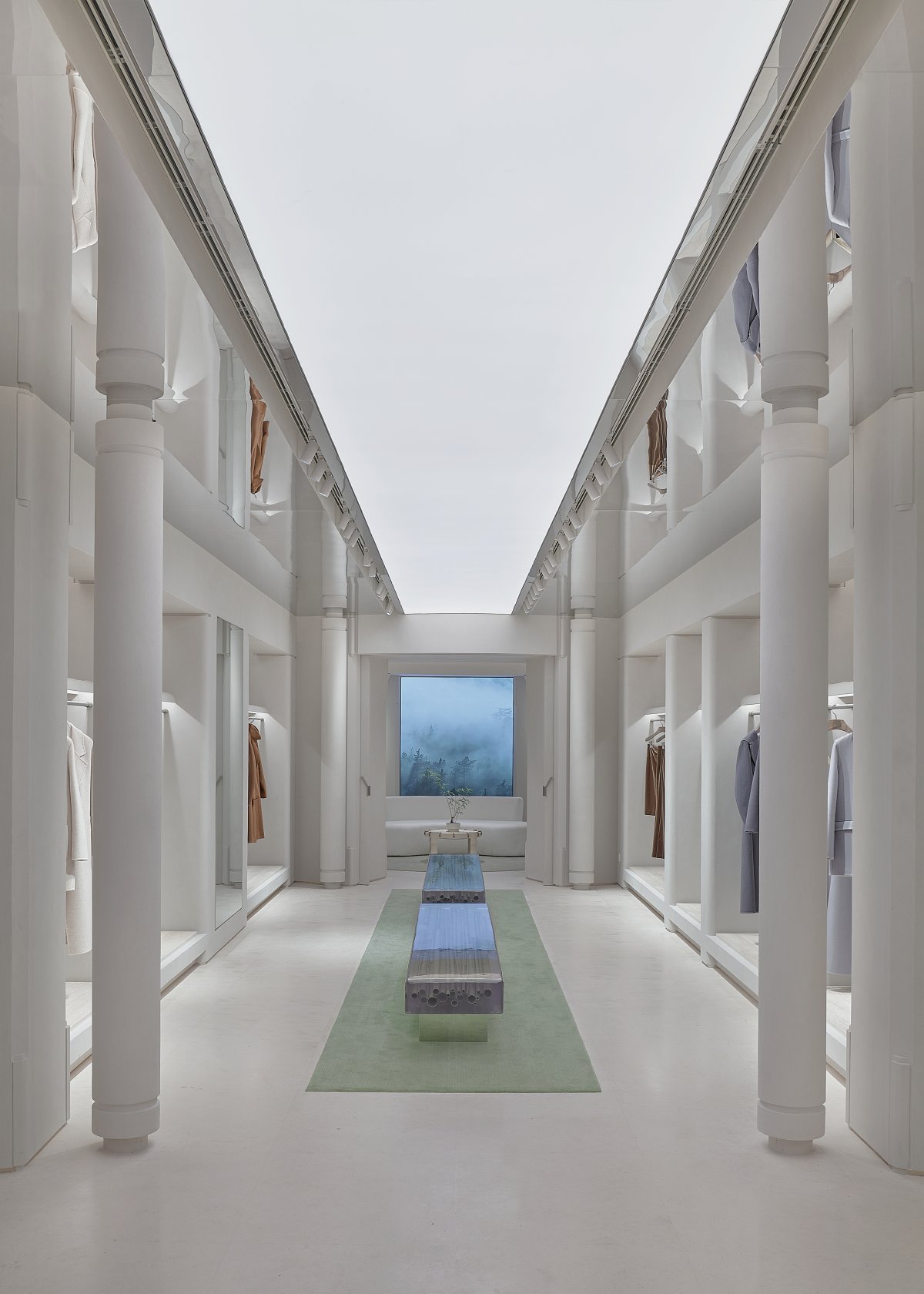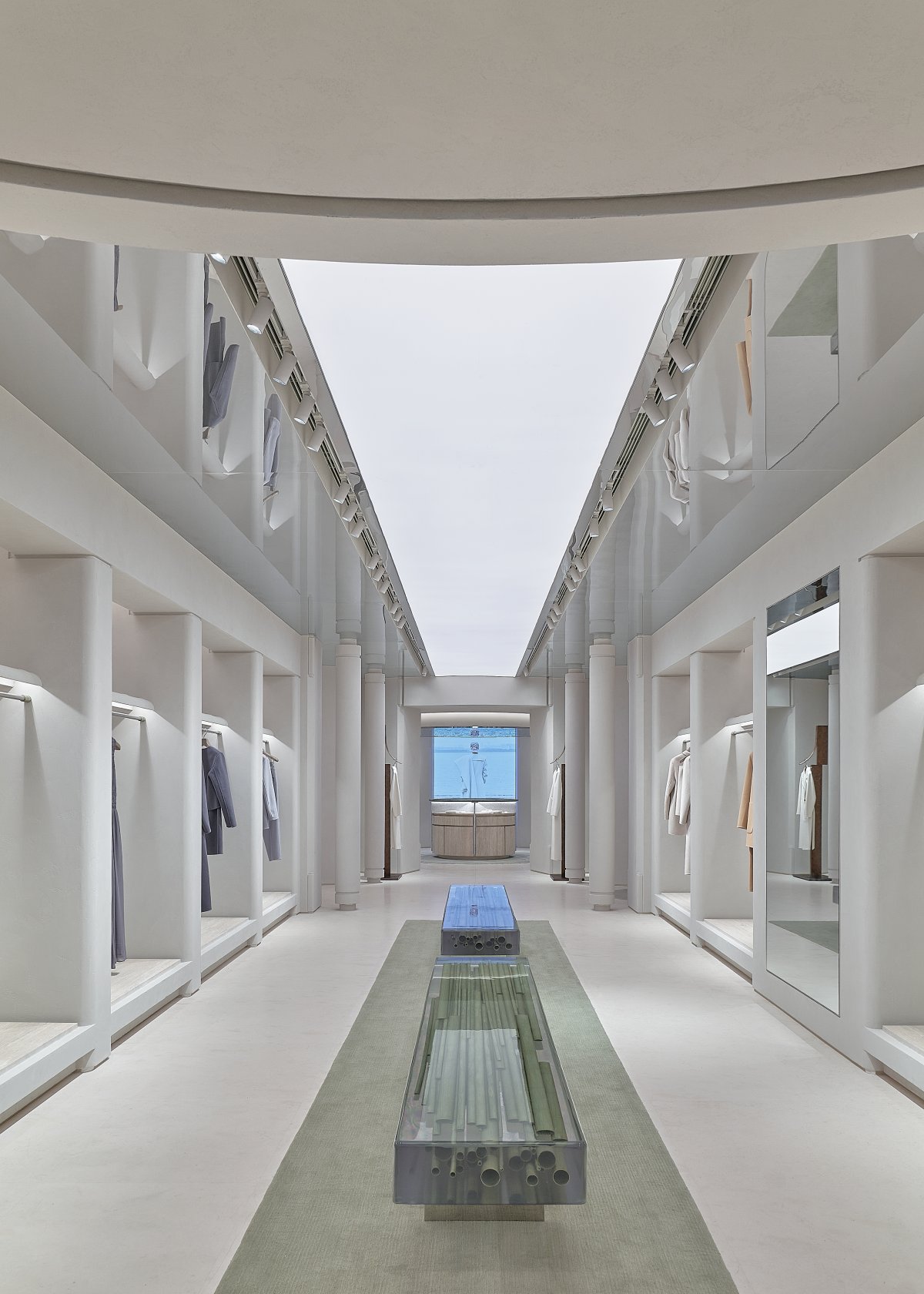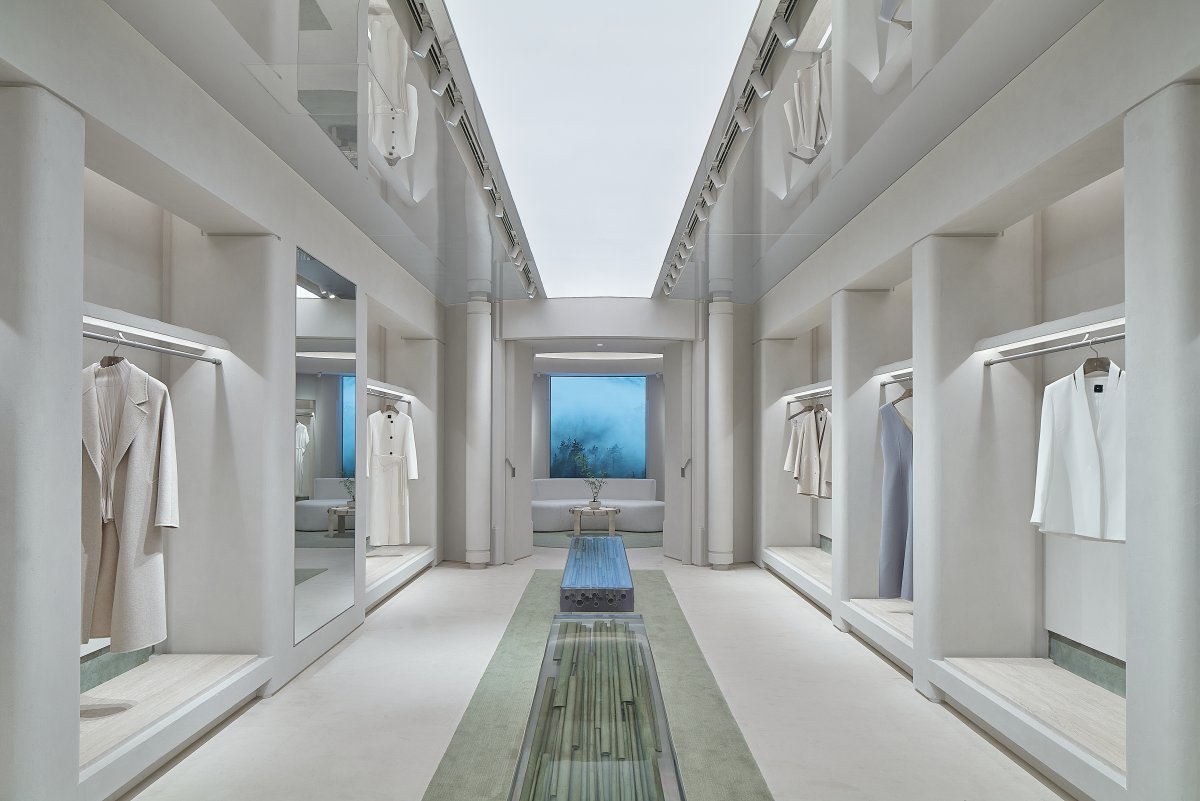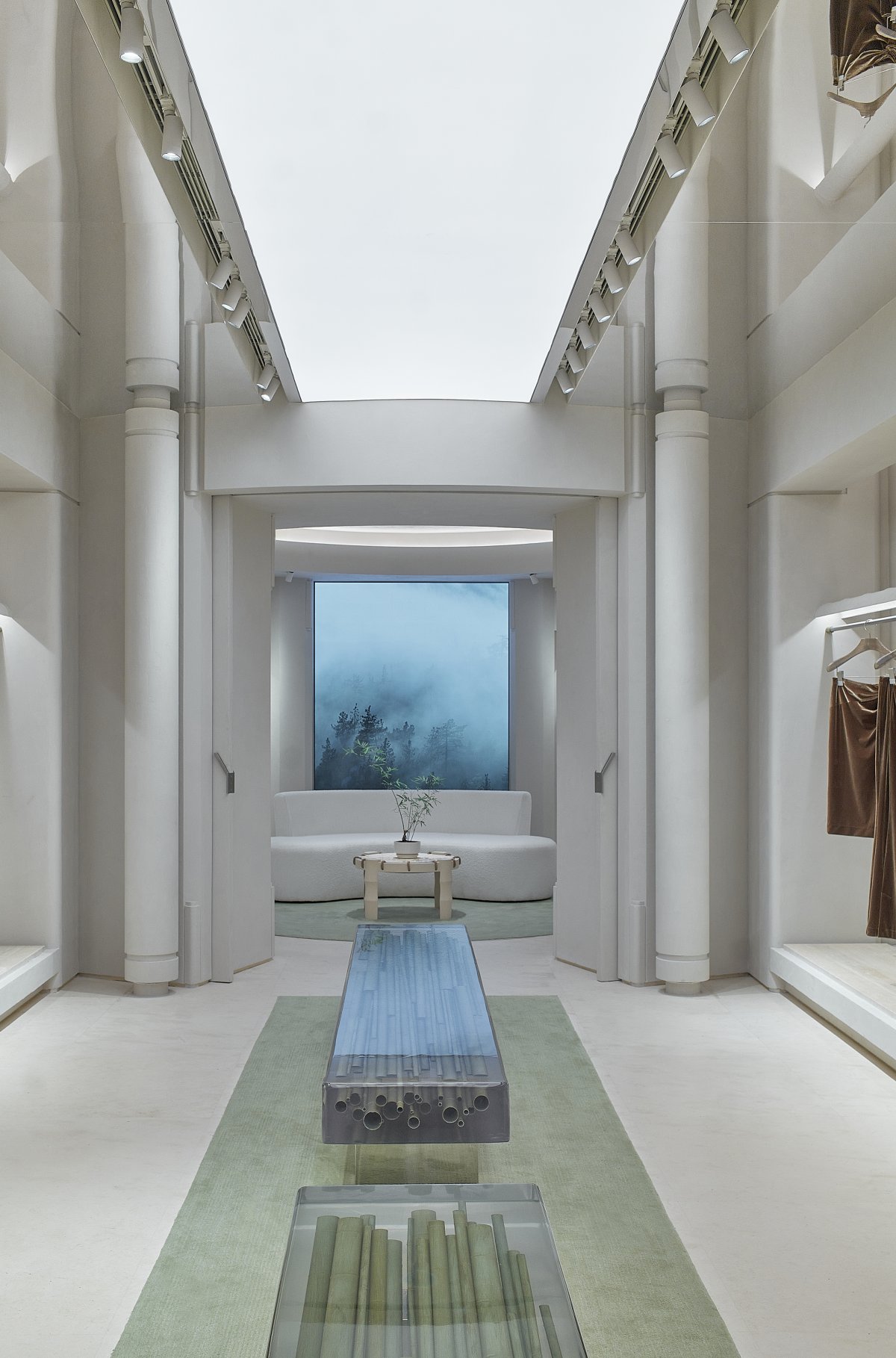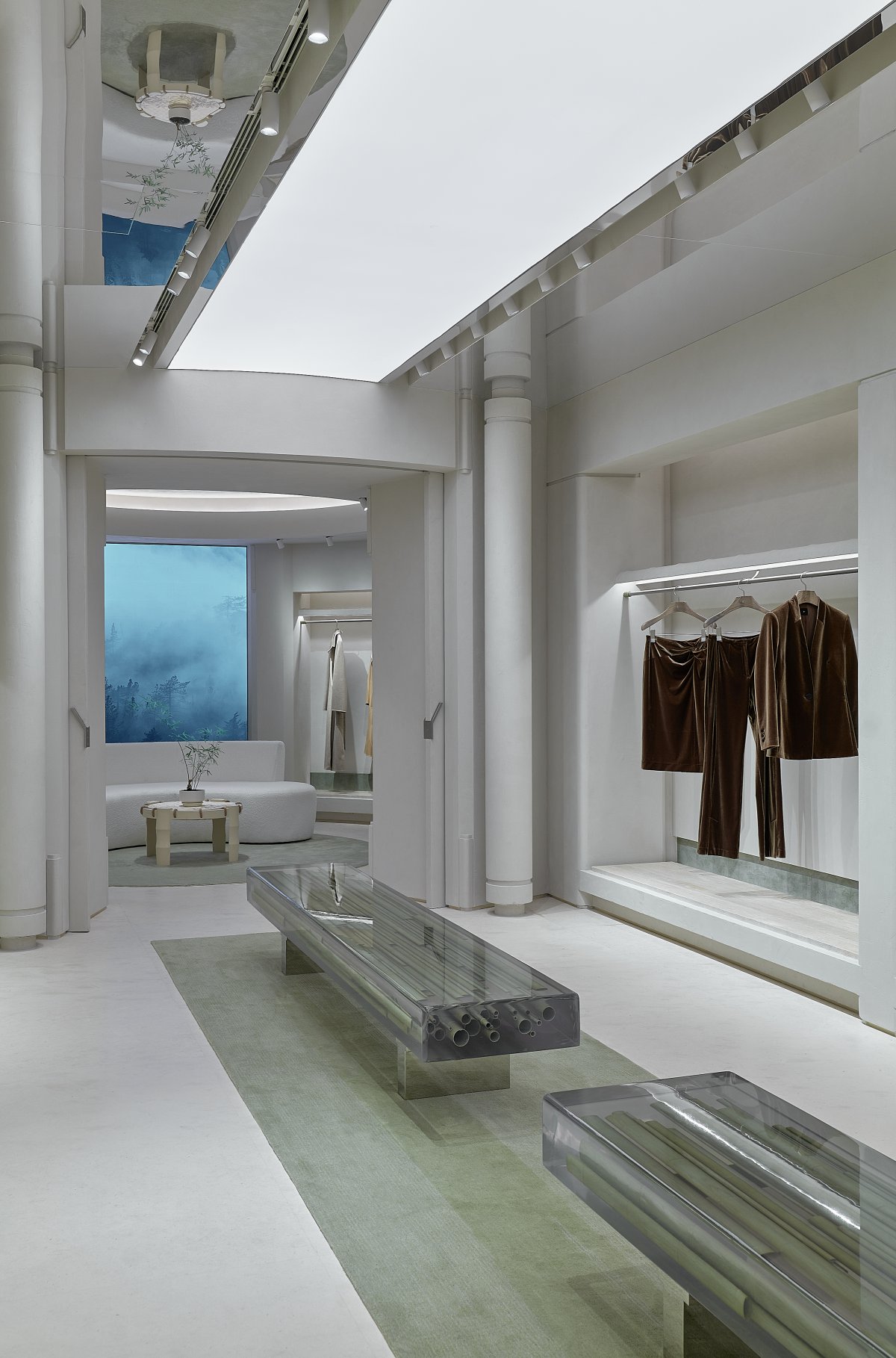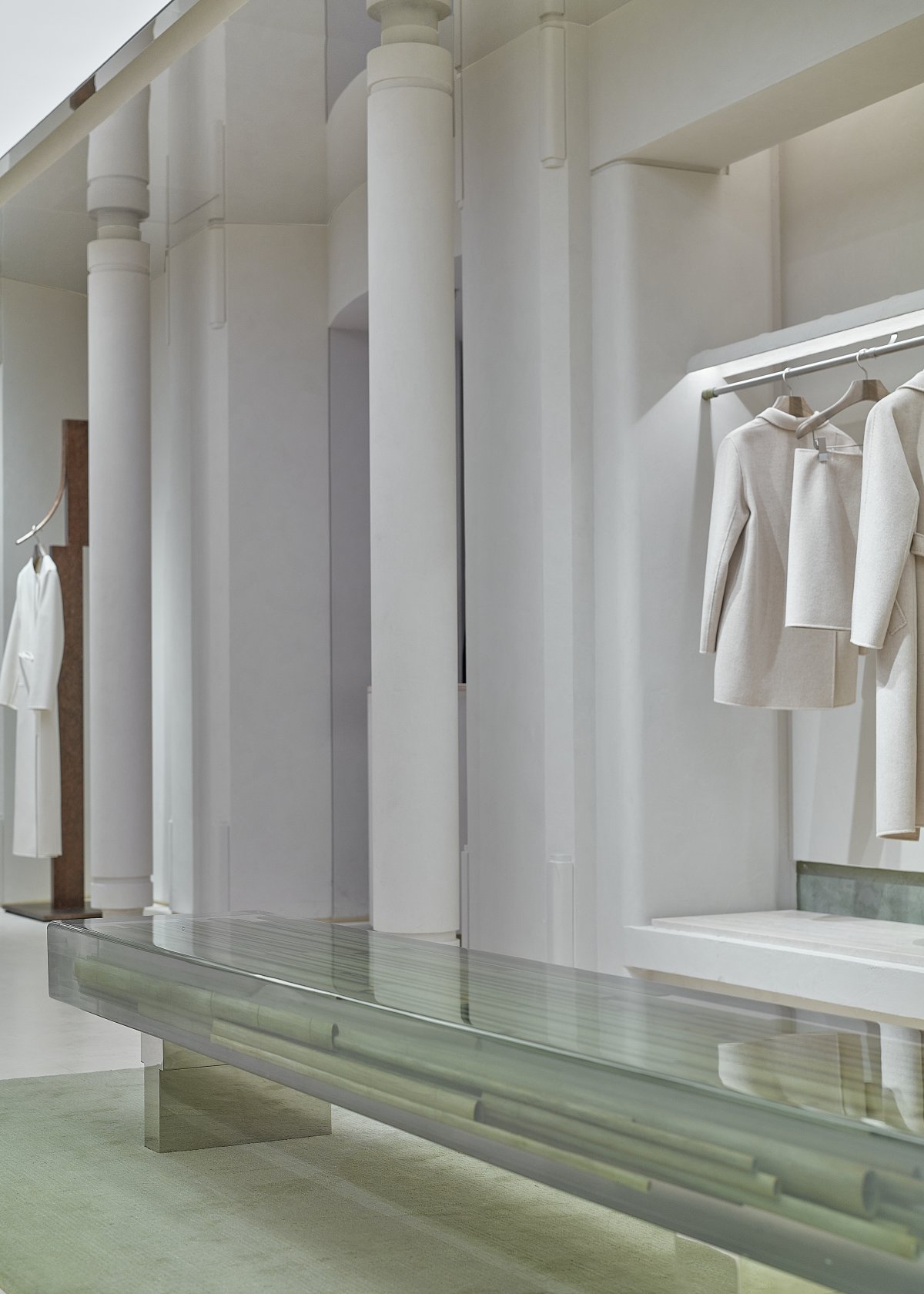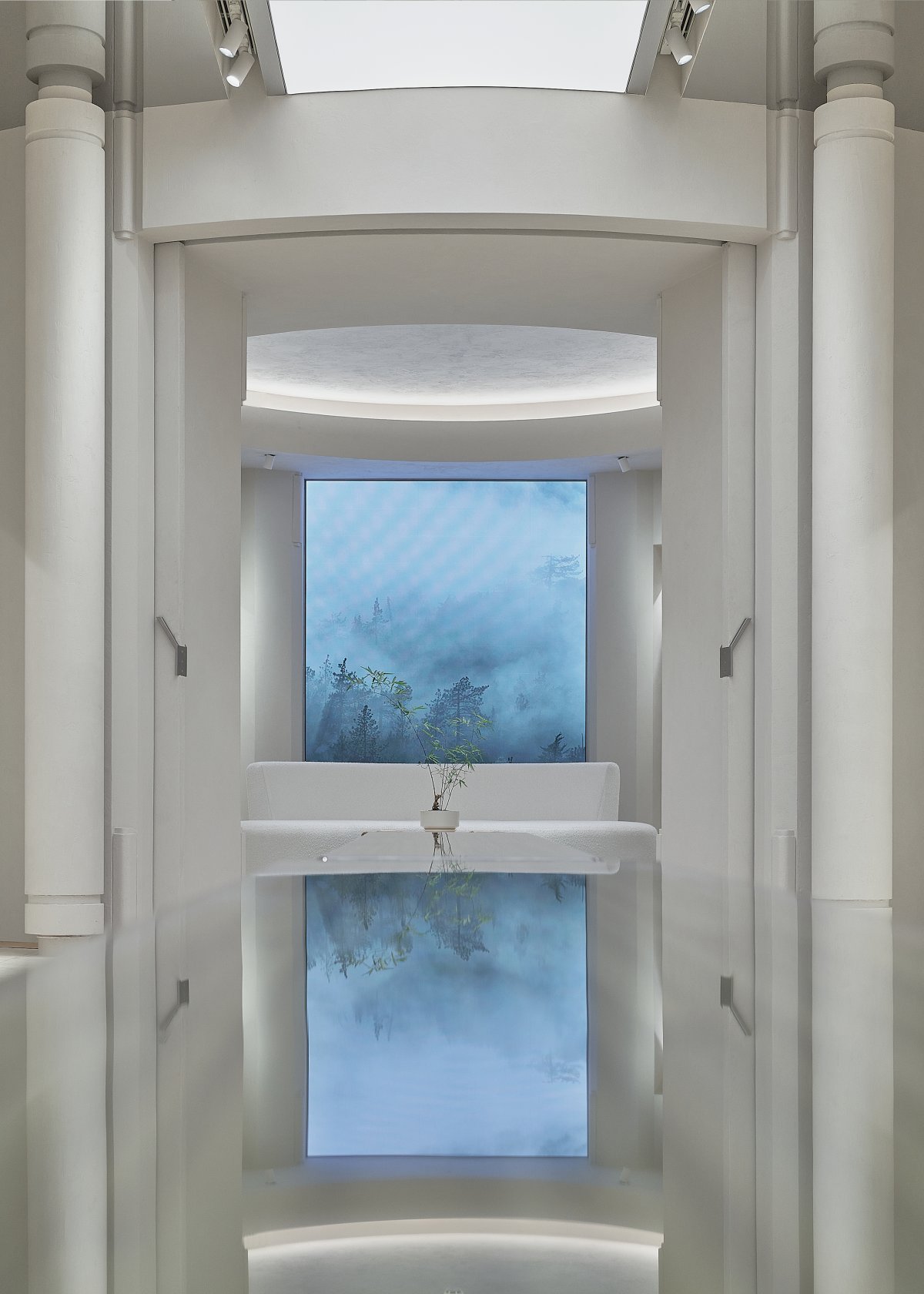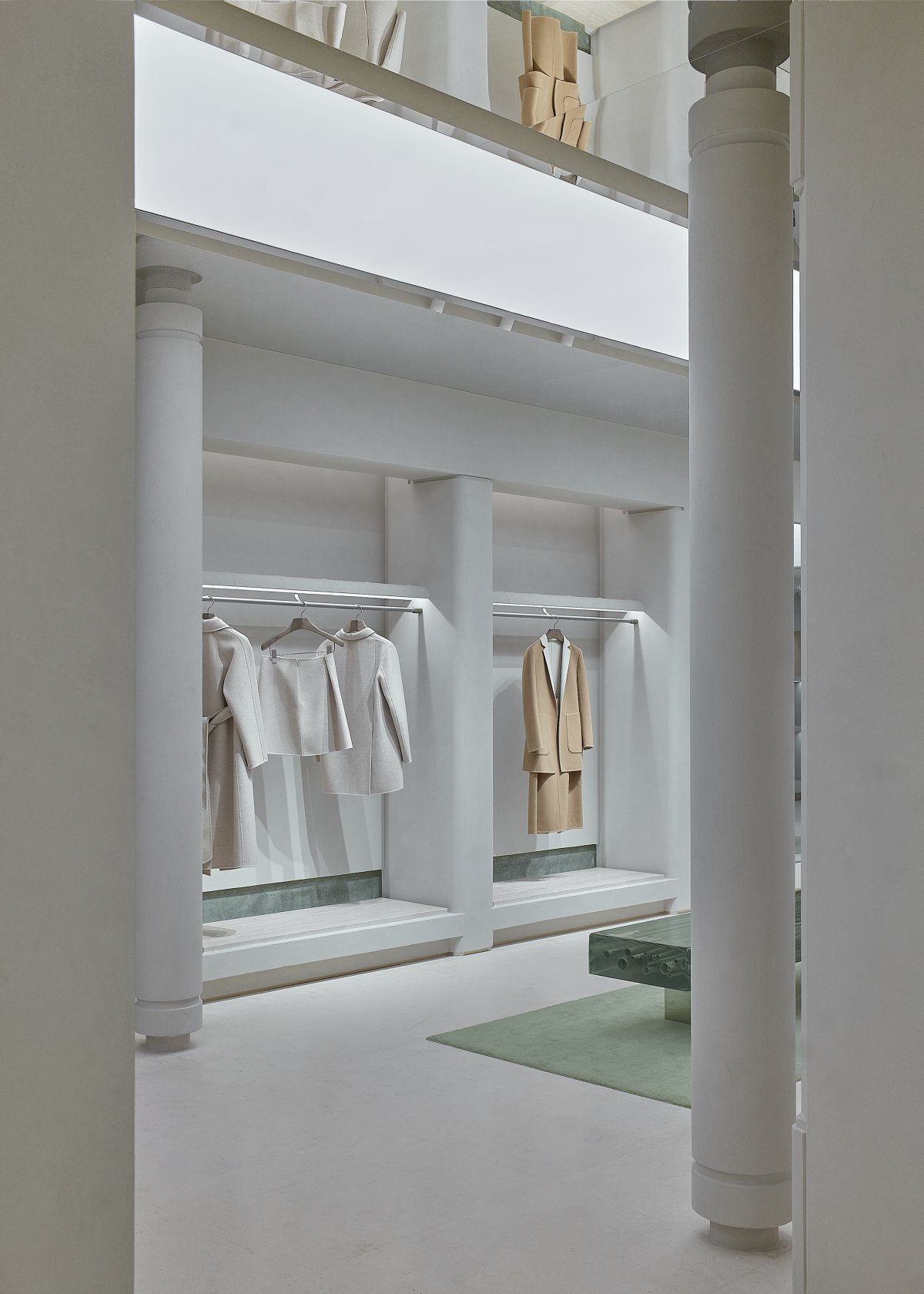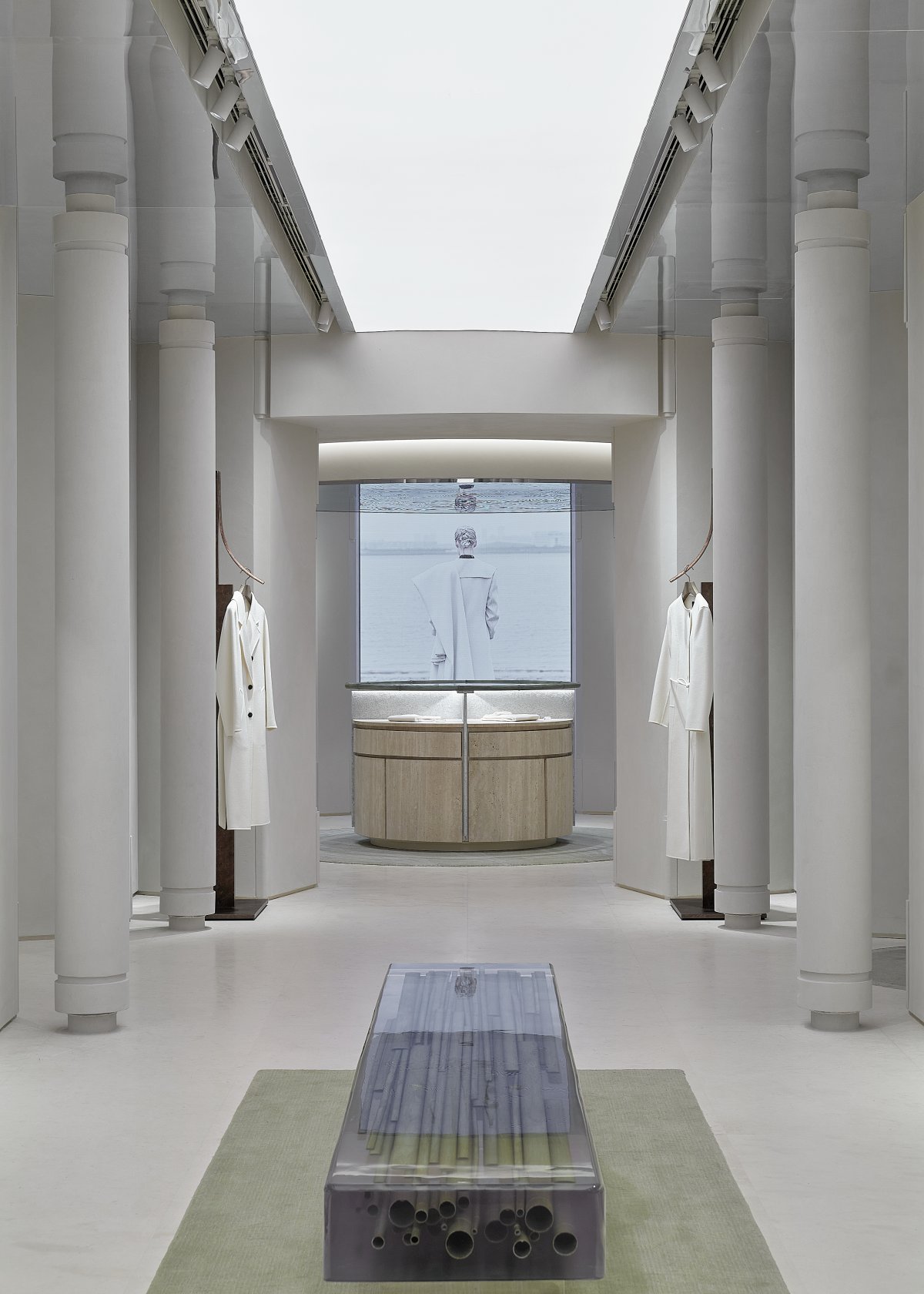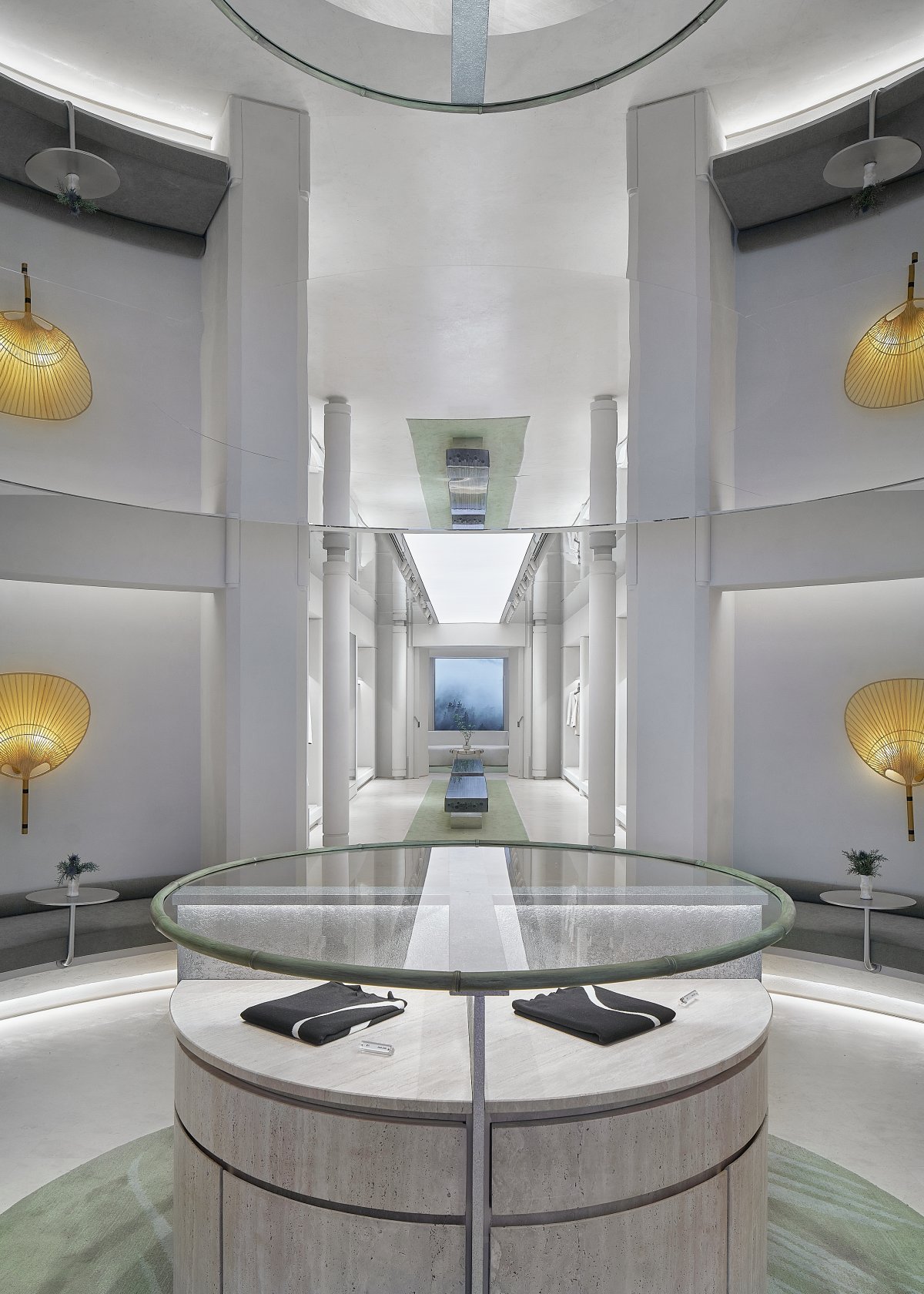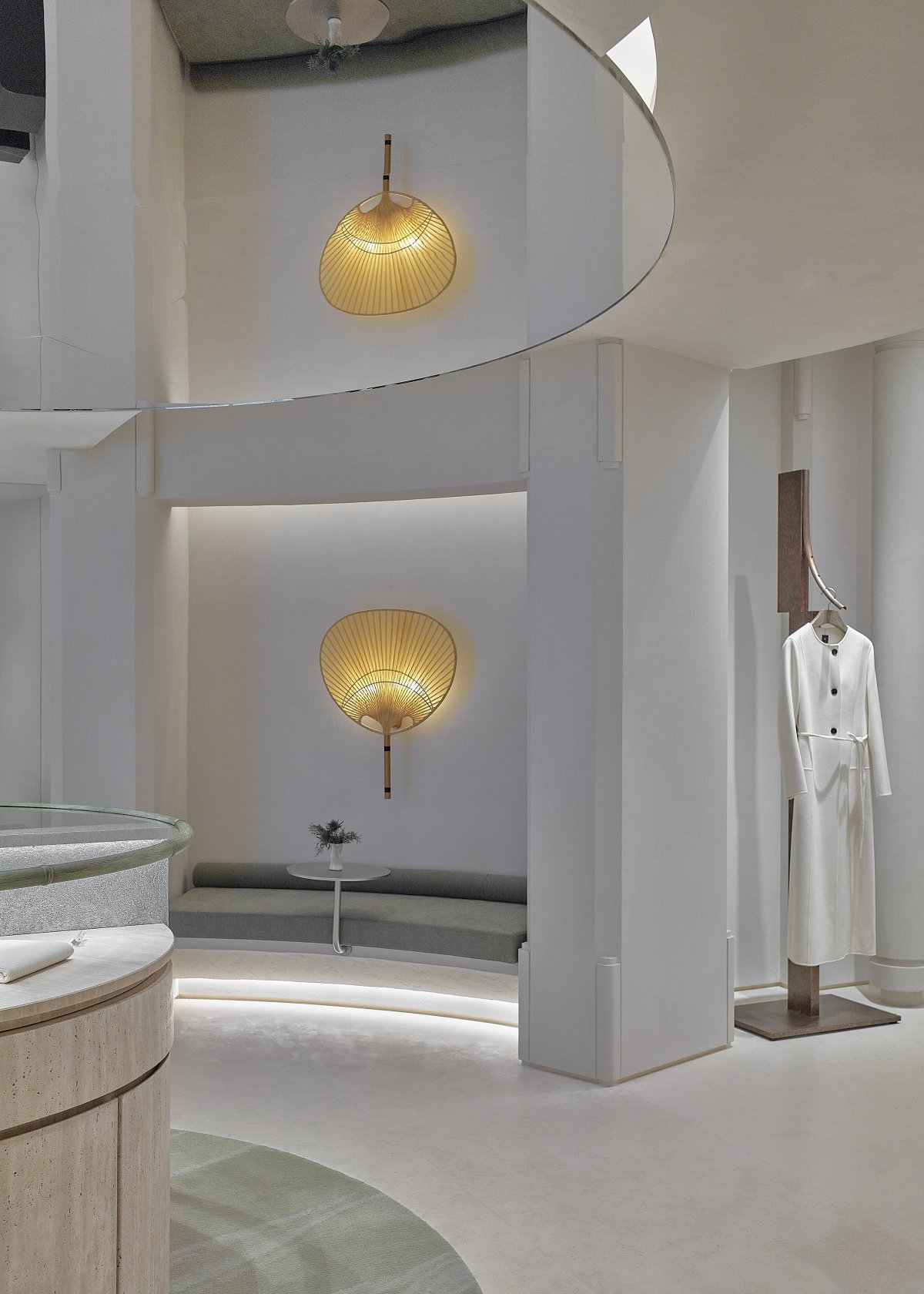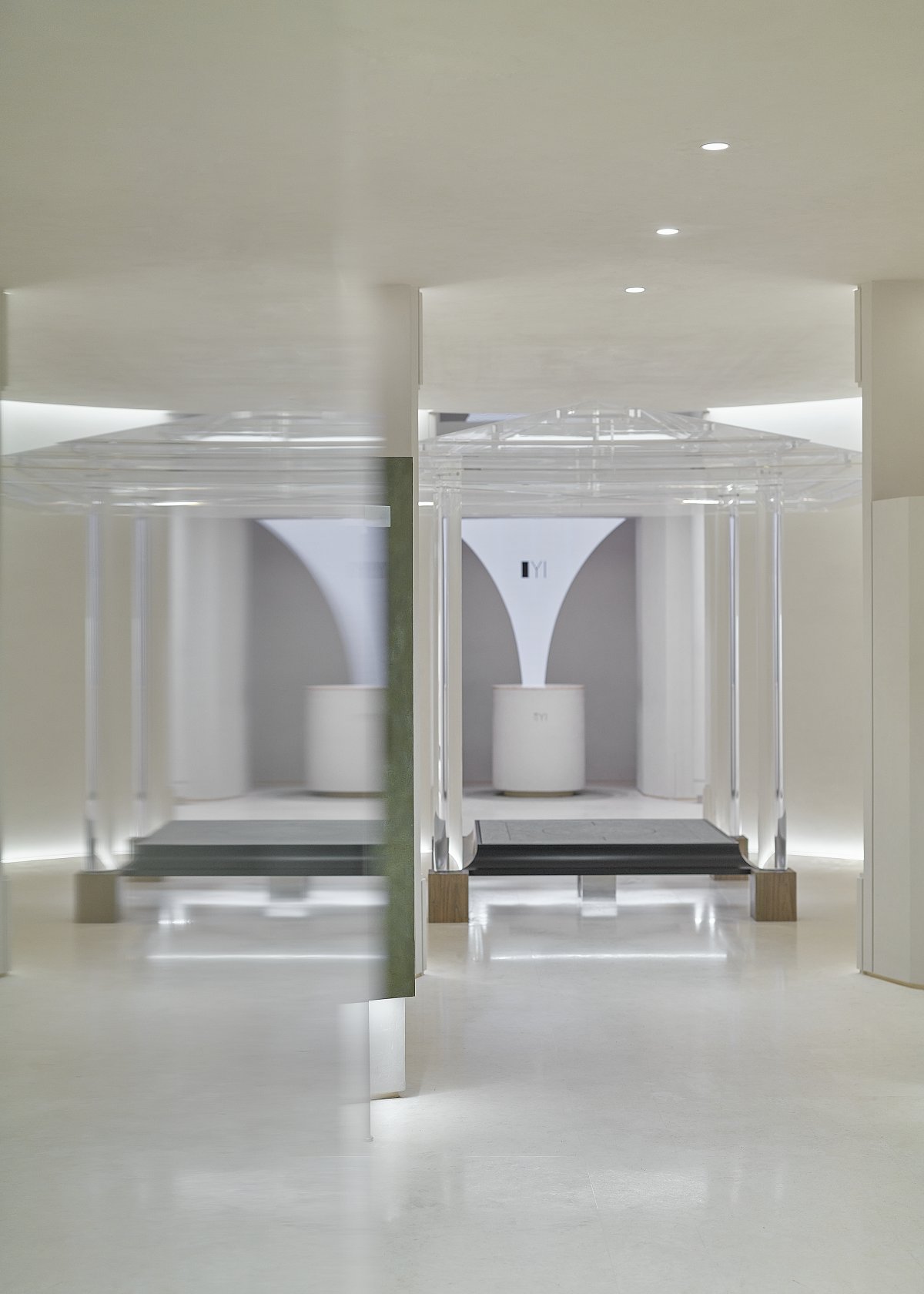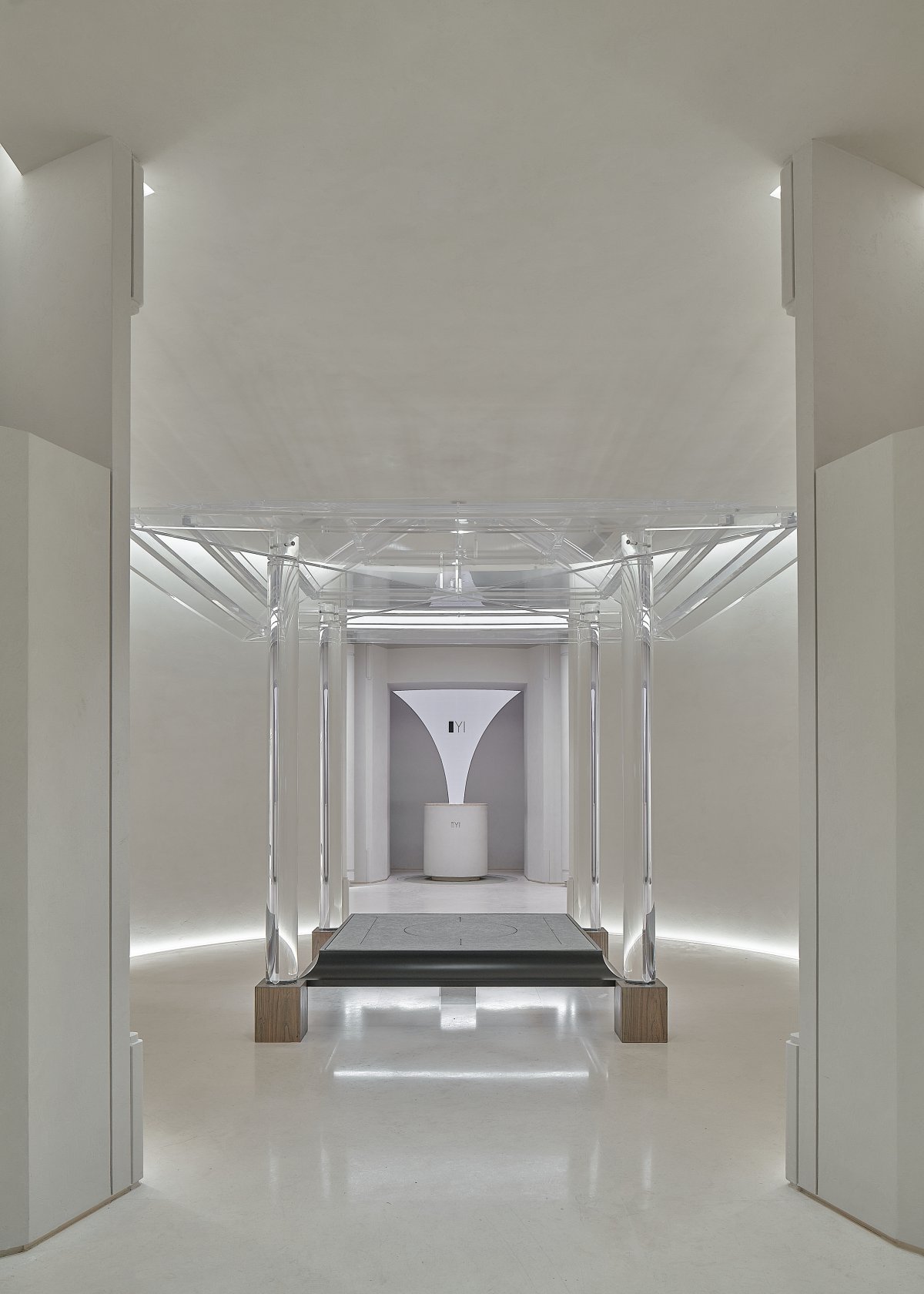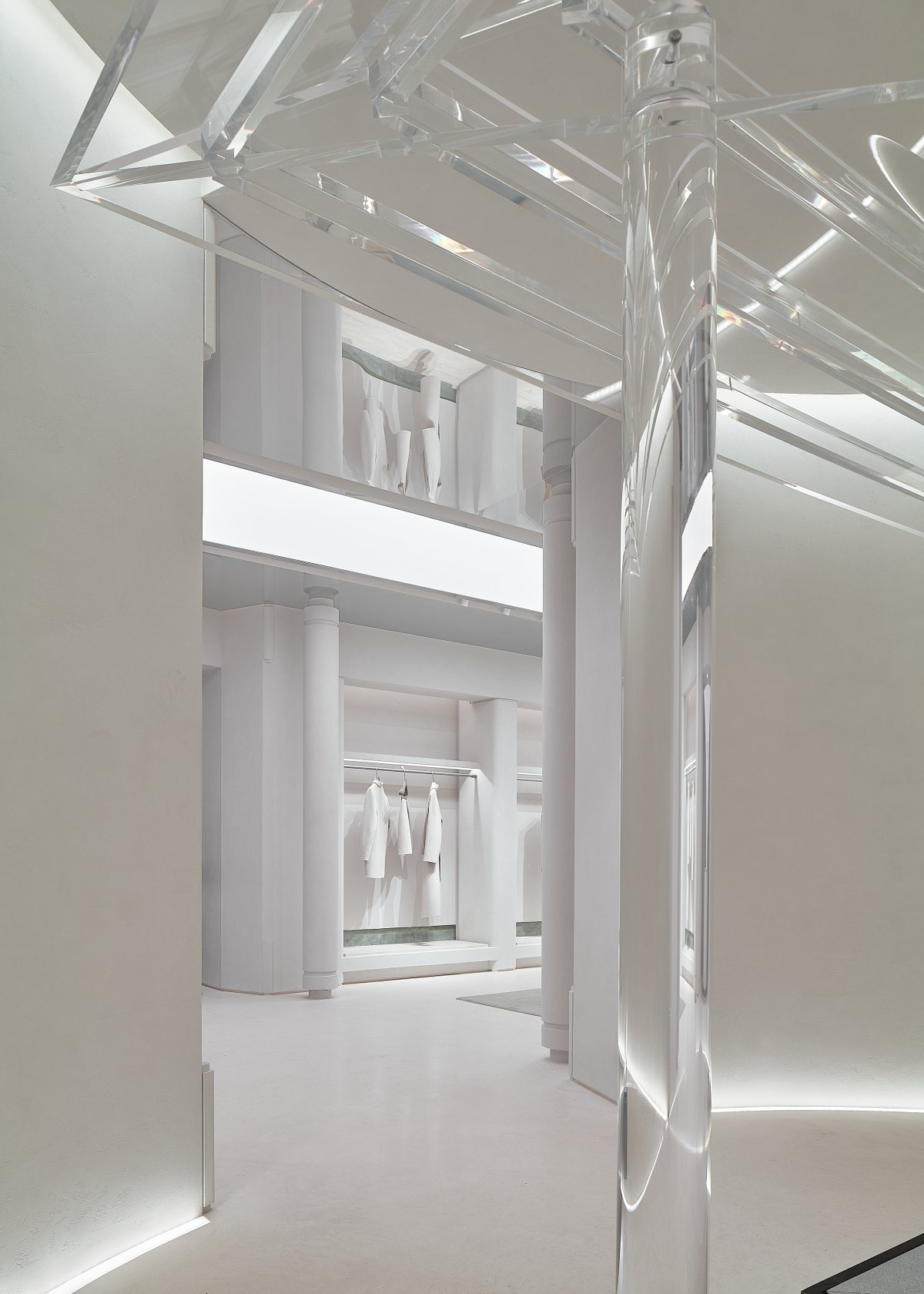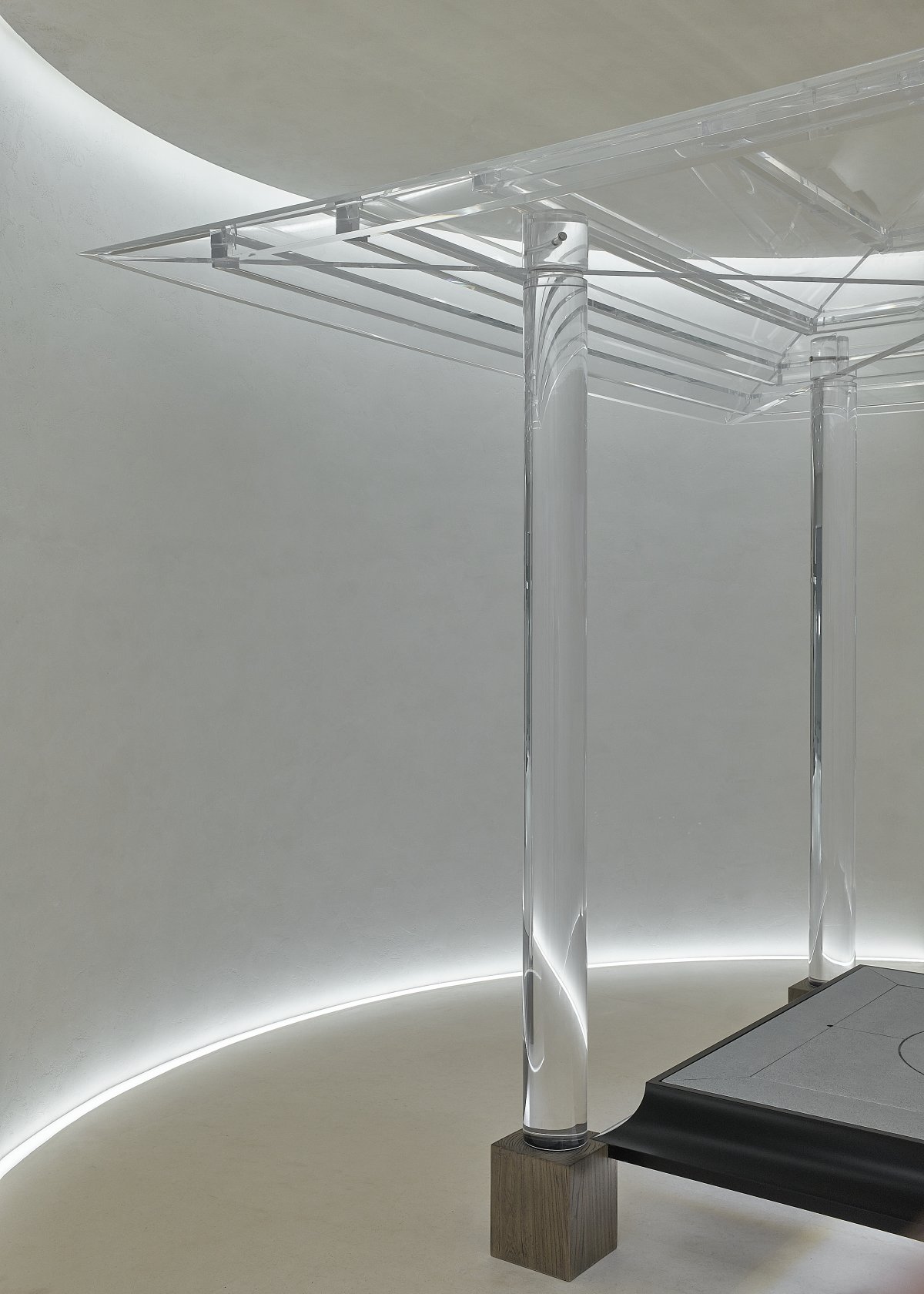
A cloud, unrestrained in style, without fixed form, and embodying no singular essence. Why take refuge in the emerald mountains? Smiling, yet answering not, the heart remains at ease.
In November 2023, Liang Architecture Studio inaugurated YI brand's premier concept lifestyle store, YI · Yun Qi . The brand's DNA, derived from the timeless beauty of Song aesthetics, unfolds into a vast, harmonious realm through the magic of spatial craftsmanship.
Spanning ancient and modern, myriad elements accompanying, this well-crafted, immersive shopping experience is not merely a multidimensional and experiential space within K11; rather, it weaves a tapestry of rest and relaxation, showcasing the multidimensional power of women, their delicacy and strength in this era. It is enchantingly cozy, utterly comfortable while navigating between the creation of myths and spatial intrigue, and opening up a new universe where the East and West, art and commerce, and the spiritual and physical converge.
It feels like I am strolling through a garden, yet also stepping into a pristine and comfortable art sanctuary. Here, there is an unobstructed view of nature, many scenes from my memories rippling on the surface of my consciousness, unfolding one by one, reflecting each other.
Everything appears to be in a state of flowing movement, yet there are also tangible walls and captivating objects that evoke a sense of excitement. The interior is both ethereal and secluded, while maintaining a sincere and straightforward ambiance. Nature and the interior intertwine uninterruptedly, and as I sit down, a placid vista of aquamarine greets me, resembling a serene sea.
Xu Liang's vision for the space is precise: pure, inclusive, powerful. Here, there is neither grandiosity, aggressive spatial concept, nor artificial passion. Instead, there are subtle and enduring clues originating from the source: the glimmers of YI · Yun Qi ’s overarching aesthetic intertwine the past and present, East and West.
Starting from atypical facades and interiors as the focal point, traditional Chinese architecture is reinterpreted and incorporated. Open, arc-shaped walls and cylindrical display cabinets comprise multiple interconnected and permeable usage scenarios in the open areas. Subsequently, a sweeping stroke integrates corridors and pavilions, . This internal architecture servesto simultaneously fulfill the requirements of floor planning, functionality, and aesthetic experience. The designer deliberately conceals the superficial barriers of form, retaining only their metaphors, further enhancing the mystery, sparking the imagination and enthusiasm of those who witness it.
The design ensures that viewers, from any vantage within the spaceenjoy maximized display interfaces with no loss of the structural details before them. Mountains, rocks, vegetation, and skylight are transmogrified into lines and walls, simultaneously stimulating perception of the whole. The transparent application of such phenomena is employed to evoke deeper meanings: to reveal the connections between people's spirits and space, the city, and the self.
On the first journey around, the pristine bamboo forest unfolds for a first glimpse through dappled sunlight,like the gradually dissipating morning mist. Bamboo shadows play upon my clean attire, captivating my gaze with their gentle undulation.
Those returning feel as though they areencountering mountain peaks once more. As the journey into the mountains unfolds, a pavilion suddenly appears—graceful, refined, and resplendent. To step in slowly is to let the world outside the pavilion momentarily recede into infinity, leaving only the expanse of sky and earth. In the silence, void of any distractions, they are once again suffused with an infinite array of details and perceptions.
Within YI · Yun Qi exists a tangible spiritual stronghold: the pavilion. In the spiritual consciousness of the Chinese people, a pavilion represents externalization without internalization, thus the history of garden construction since the Song Dynasty begins with the introduction of the pavilion, namely the Canglang Pavilion. Drawing inspiration from Su Dongpo's statement "Build a pavilion to the north of the hall, dig a pond to the south, introduced water flow, and plant trees for a place of rest," Xu Liang deploys this pavilion as a punctuation mark. In this open virtual space, we find freedom without the need for enclosed physical spaces.
However, the pavilion’s expression is crucial. The acrylic pavilion, characterized by its mortise and tenon structure, seamlessly merges traditional Eastern craftsmanship with entirely contemporary materials. The crisp and ethereal pavilion floats on equally simple wooden columns. The pavilion's imagery transcends physical space to serve as the focal point of the brand's commercial display space, and also as an object of contemplation, illuminating the inner self.
Beyond the pavilion, the designer has selected bamboo as a guiding thread to unify the space. Bamboo, elegant and compact, serves as a metaphor for the brand culture and the female power it represents. Beyond the ancient symbolism of lofty pride, there is an underlying layer of genuine warmth. To accurately capture the clear and pure meaning of bamboo's color, the bamboo green of the curved walls undergoes fifteen gradients. The bamboo-based corridor pillars thus retain the pristine white of their internal bamboo membranes, sinking back into purity alongside the overall space, and serving to complement the displayed products.
In terms of details, the design aligns with the brand philosophy, upholding openness. The form of bamboo is repeatedly combined with acrylic, mirrors, metal, and fabric, resulting in functional furniture with rich configurations and interconnected meanings. External nature is reproduced through modern technology, acquiring a completely new significance.
The space envelops us, much like clothing, providing a secure and fulfilling place for us to dwell. This haven provides a respite that stirs our memories and love, giving us a sense of solace and support.
Transcending the traditional business model to a lifestyle concept space, Xu Liang's construction of YI is nonetheless grounded in rationality.
On the design level, the architect establishes a relationship between architectural syntax and spatial thinking, exploring and delving into the interaction of material as both a bearer and pathway throughout the space. The space reveals its unique rhythm and layers as it delves into the relationship between architecture and construction. The connections between different interfaces can be traversed, blurred, and re-associated, creating an intriguing interplay between space and objects, endowing the space with multiple values.
On the other hand, in breaking away from a singular consumption scene, YI creates a spiritual enclave that radiates from the core of its offerings, sincerely expressing the brand's genes. This naturally elevates both commercial and cultural values. For the designer, conveying the spiritual meaning that the space and brand aim to express is challenging, whether through a single image or spatial description. The search for inspiration from traditional courtyards and gardens is motivated by the rich traditions within these two realms. Within this traditional lineage, there is both the refinement of human craftsmanship and the grandeur found beneath the vast natural sky. The millennia-old Chinese concept of "unity of heaven and humanity" fulfills our desire for both condensed human essence and the expansive beauty of nature.
In the end, YI · Yun Qi opens with simplicity, practicality, as well as a suspended poetic essence, patiently awaiting exploration.
- Interiors: Liang Architecture Studio
- Words: Zhu Hai

